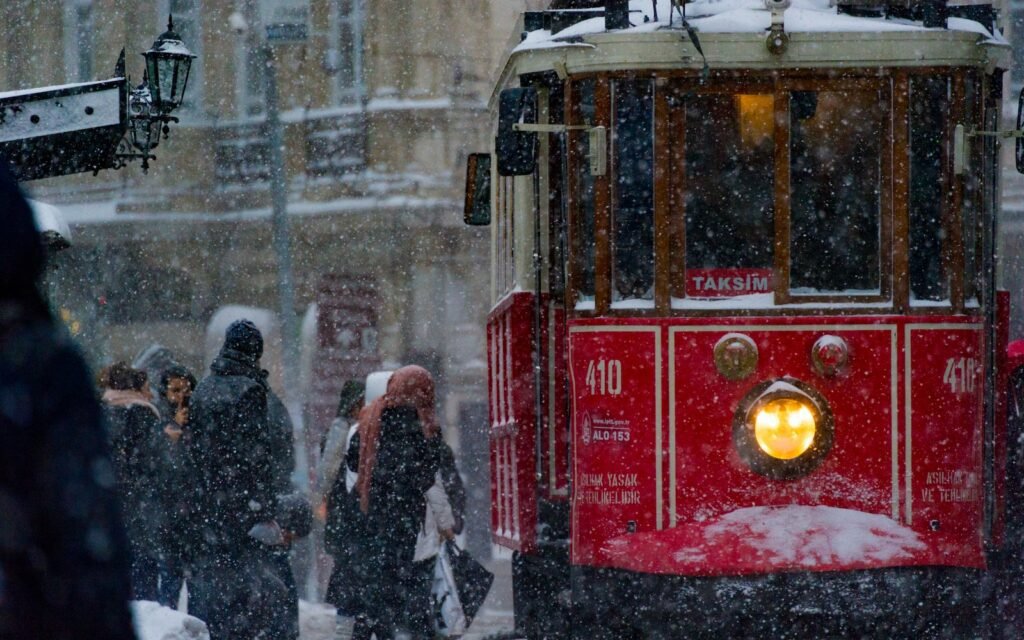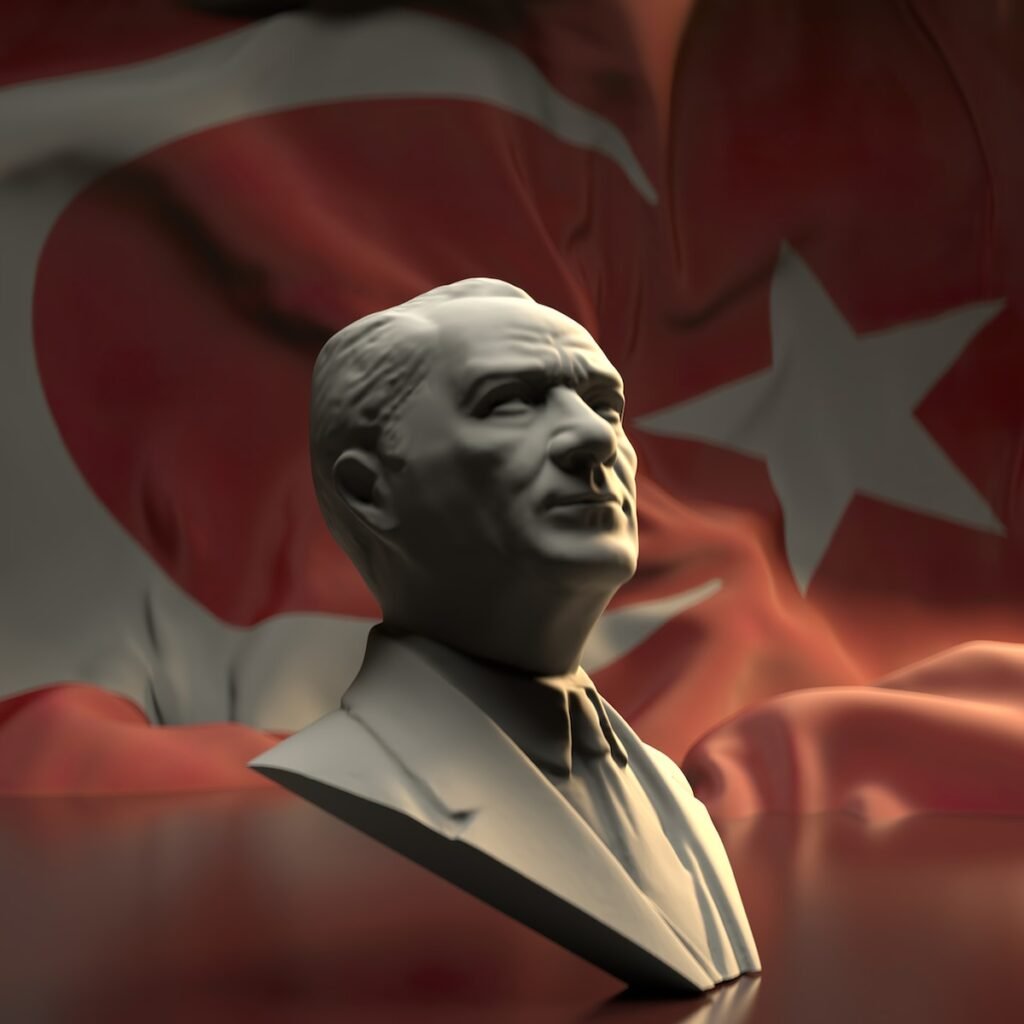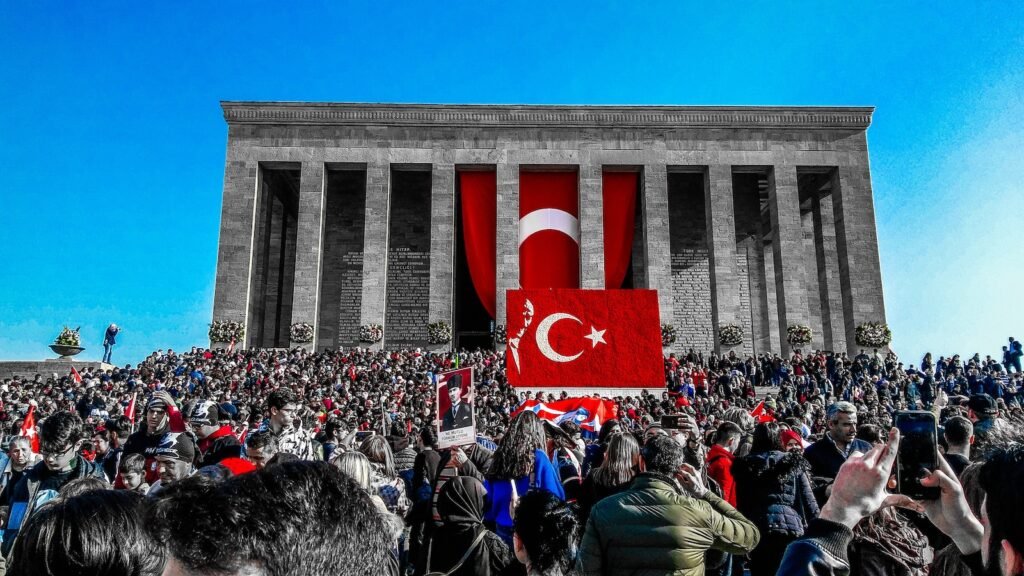Turkey celebrates a range of national holidays in 2024. Here is a list of all the dates to look out for while visiting Turkey:
List of National Holidays in Turkey 2024
New Year’s Day (Yılbaşı) – January 1
Every year on January 1st, Turkish people celebrate New Year’s Day, also known as “Yilbaş.” It is a public holiday in many nations throughout the world, including Turkey, and marks the start of the Gregorian calendar year.

People generally meet with family and friends on New Year’s Day to celebrate and say goodbye to the past year while embracing the new one. Parties, fireworks displays, special feasts, and the exchange of gifts or well-wishes are all examples of festivities. People in Turkey frequently decorate their homes, streets, and shops with lights, ornaments, and festive decorations. Many people also use this time to set New Year’s resolutions and goals for the next year.
National Sovereignty and Children’s Day (Ulusal Egemenlik ve Çocuk Bayramı) – April 23
National Sovereignty and Children’s Day, also known in Turkish as “Ulusal Egemenlik ve ocuk Bayram,” is a prominent holiday observed in Turkey on April 23rd each year. It is significant since it emphasises both national sovereignty and children’s rights and well-being.

The holiday commemorates the founding of Turkey’s Grand National Assembly on April 23, 1920, which played an important role in the Turkish War of Independence. Mustafa Kemal Atatürk, the founder of the Turkish Republic, dedicated this day to the children of Turkey to emphasise their importance and worth to the nation’s future.
Throughout the country on National Sovereignty and Children’s Day, numerous events and activities are organised to celebrate and honour children. Special programmes, performances, and ceremonies are frequently held in schools to allow youngsters to showcase their abilities through music, dance, poetry recitals, and theatrical plays. The Turkish President also addresses the public, emphasising the importance of children and their role in creating the country’s future.
On this day, children can also visit significant government facilities like as the Grand National Assembly and participate in cultural and educational events. It is a day dedicated to promoting children’s rights, welfare, and happiness, as well as instilling a sense of national pride and unity in the Turkish people.
Labor and Solidarity Day (Emek ve Dayanışma Günü) – May 1
Labour and Solidarity Day, also known as “Emek ve Dayanşma Günü” in Turkish, is a public holiday celebrated in Turkey on May 1st each year. It is a day dedicated to honouring workers’ contributions and rights, as well as fostering working-class solidarity.
May 1st is celebrated around the world as International Workers’ Day or May Day. It arose from the late-nineteenth-century labour movement’s quest for better working conditions and labour rights. Labour and Solidarity Day has historical significance in Turkey, where there is a rich legacy of workers’ rights and social action.
Labour unions, workers’ organisations, and diverse civil society organisations organise rallies, marches, and demonstrations on this day to campaign for workers’ rights, fair salaries, better working conditions, and social justice. Participants frequently carry banners, placards, and flags that symbolise their unions or causes.
Workers can also use Labour and Solidarity Day to express their togetherness, solidarity, and support for one another. It reminds us of the importance of workers’ rights and the ongoing struggle for social and economic fairness.
While Labour and Solidarity Day is a public holiday in Turkey, it is also connected with rallies and gatherings that occasionally culminate in public gatherings or events. For a safe and peaceful experience, as with any event of this sort, it’s best to keep informed about the local circumstances and follow any guidelines or instructions from authorities.
Commemoration of Atatürk, Youth and Sports Day (Atatürk’ü Anma, Gençlik ve Spor Bayramı) – May 19
The commemoration of Atatürk, Youth, and Sports Day, known in Turkish as “Atatürk’ü Anma, Gençlik ve Spor Bayram,” is a prominent national holiday held in Turkey on May 19th each year. It is historically and culturally significant because it celebrates Mustafa Kemal Atatürk, the founder of the Turkish Republic,’s arrival in Samsun on May 19, 1919, which marked the start of the Turkish War of Independence.
Atatürk, along with a group of committed citizens, launched the fight for freedom from occupying powers and foreign influence. This day commemorates Atatürk’s leadership, vision, and sacrifices during the Turkish War of Independence.
Furthermore, May 19th is observed in Turkey as Youth and Sports Day. It emphasises the importance of youth and encourages them to be active, involved, and responsible citizens. The day represents the importance of youth in ensuring the nation’s prosperity in the future.
On this day, numerous events, ceremonies, and activities are held across the country to commemorate and honour Atatürk’s legacy while also encouraging youth participation. Sports tournaments, parades, concerts, cultural performances, and other celebratory activities are held to celebrate the youth’s abilities and achievements.

Photo by tansu sayıner on Unsplash
Traditionally, the Turkish President addresses the nation, emphasising the significance of the day and emphasising the principles of unity, independence, and progress. Special programmes, exhibitions, and performances are also held at schools and universities to honour the day and promote young empowerment and engagement.
Atatürk, Youth, and Sports Day is a patriotic festival that honours Atatürk’s accomplishments to the Turkish Republic while also celebrating the ideas of freedom, youth, and national unity.
Democracy and National Unity Day (Demokrasi ve Milli Birlik Günü) – July 15
Democracy and National Unity Day, also known as “Demokrasi ve Milli Birlik Günü” in Turkish, is a national holiday celebrated in Turkey on July 15th every year. This day remembers the July 15th coup attempt, a key event in Turkish history.
On the night of July 15, 2016, a faction within Turkey’s military attempted to destabilise the country’s democratically elected government. The coup attempt was foiled thanks to the tenacity and commitment of the Turkish people, who came to the streets to defend democracy and against the coup plotters. The actions of that night proved the Turkish people’s strong devotion to democracy and national unity.
Democracy and National Unity Day serves as a reminder of the significance of protecting and sustaining democratic ideals, defending national sovereignty, and banding together in the face of democratic dangers. It is a day to remember the bravery and sacrifices of individuals who stood up to the attempted coup, as well as to remember those who died or were injured in the events.
Throughout the country, numerous commemoration activities and ceremonies are held on this day. Speeches by political leaders, meetings in public places, mourning services, and other activities emphasising the importance of democracy, unity, and national solidarity may be included.
Democracy and National Unity Day is a chance to reflect on the importance of democracy, the value of national unity, and Turkey’s continued commitment to safeguarding democratic institutions.
Victory Day (Zafer Bayramı) – August 30
Victory Day, also known as “Zafer Bayram” in Turkish, is an annual national holiday observed in Turkey on August 30th. It commemorates the Turkish armies’ overwhelming victory at the Battle of Dumlupnar during the Turkish War of Independence.
The Turkish army, led by Mustafa Kemal Atatürk, won a huge victory against the invading Greek forces in the Battle of Dumlupnar on August 30, 1922. This victory was a watershed moment in Turkey’s War of Independence, ushering in the liberation of Anatolia from foreign domination and the foundation of the Republic of Turkey.
Victory Day is a commemoration and celebration of the Turkish people’s bravery, sacrifice, and resilience in their battle for freedom. It symbolises the Turkish nation’s perseverance and commitment to preserving its sovereignty and national unity.
Many events and activities are scheduled across the country for this day. Among them are official events, military parades, fireworks displays, cultural performances, and exhibitions. The Turkish President typically addresses the nation, highlighting the significance of the victory and the ideas it represents.
Victory Day is a day of patriotic pride and solidarity in Turkey, when people gather to remember their past and offer gratitude to those who fought for independence. It serves as a reminder of the significance of preserving and protecting the Turkish nation’s achievements and ideals.
Republic Day (Cumhuriyet Bayramı) – October 29
Republic Day, also known as “Cumhuriyet Bayram” in Turkish, is a prominent national holiday celebrated in Turkey each year on October 29th. It celebrates the proclamation of the Turkish Republic in 1923.
Republic Day commemorates the anniversary of the Republic’s declaration by Mustafa Kemal Atatürk, the founder of modern Turkey. The Republic of Turkey was created on October 29, 1923, following the Turkish War of Independence and the abolition of the Ottoman Empire. Atatürk was elected as Turkey’s first President, ushering in a new age of secularism, modernization, and democratic reforms.

Republic Day is a day to celebrate the Turkish Republic’s principles and values, such as democracy, secularism, equality, and national unity. It is a day to remember Atatürk’s vision and legacy, as well as the sacrifices and efforts of those who helped to establish and develop the Republic.
Across the country, many events and ceremonies are planned for this day. Parades, official ceremonies, concerts, fireworks displays, cultural performances, and exhibitions are examples of such events. The Turkish President frequently addresses the country, reflecting on the Republic’s achievements and emphasising the necessity of unity, progress, and democratic values.
Republic Day is a day to celebrate national pride, solidarity, and reflection on the principles that the Republic of Turkey represents. It serves as a reminder of the country’s rich past, its path to modernization, and the continued dedication to maintaining the Republic’s principles.
Types of Businesses which are CLOSED
During the National Holidays in Turkey 2024 government offices, banks and some kind of offices offices will be closed. It’s just like any other national holiday. Some museums can be closed but we advice checking with the museum or venue before visiting.
Types of Businesses which are OPEN
All cafes, restaurants and entertainment venues will be open with the exception of some museums. We recommend using these days to do something like visit the food festival or general resting. As the Turkish public will be out and most places will be busy.
Religious Holidays – Ramadan 2024 Dates
Additionally, Islamic holidays such as Ramadan (Ramazan Bayramı) and Sacrifice (Kurban Bayramı) follow the Islamic lunar calendar, so their specific dates change each year.
Remember to consult an official source or check a reliable Turkish holiday calendar for the most accurate and up-to-date information about holidays in 2024.
Read about: 2024 Ramadan Dates in Turkey

1 thoughts on “National Holidays in Turkey 2024”